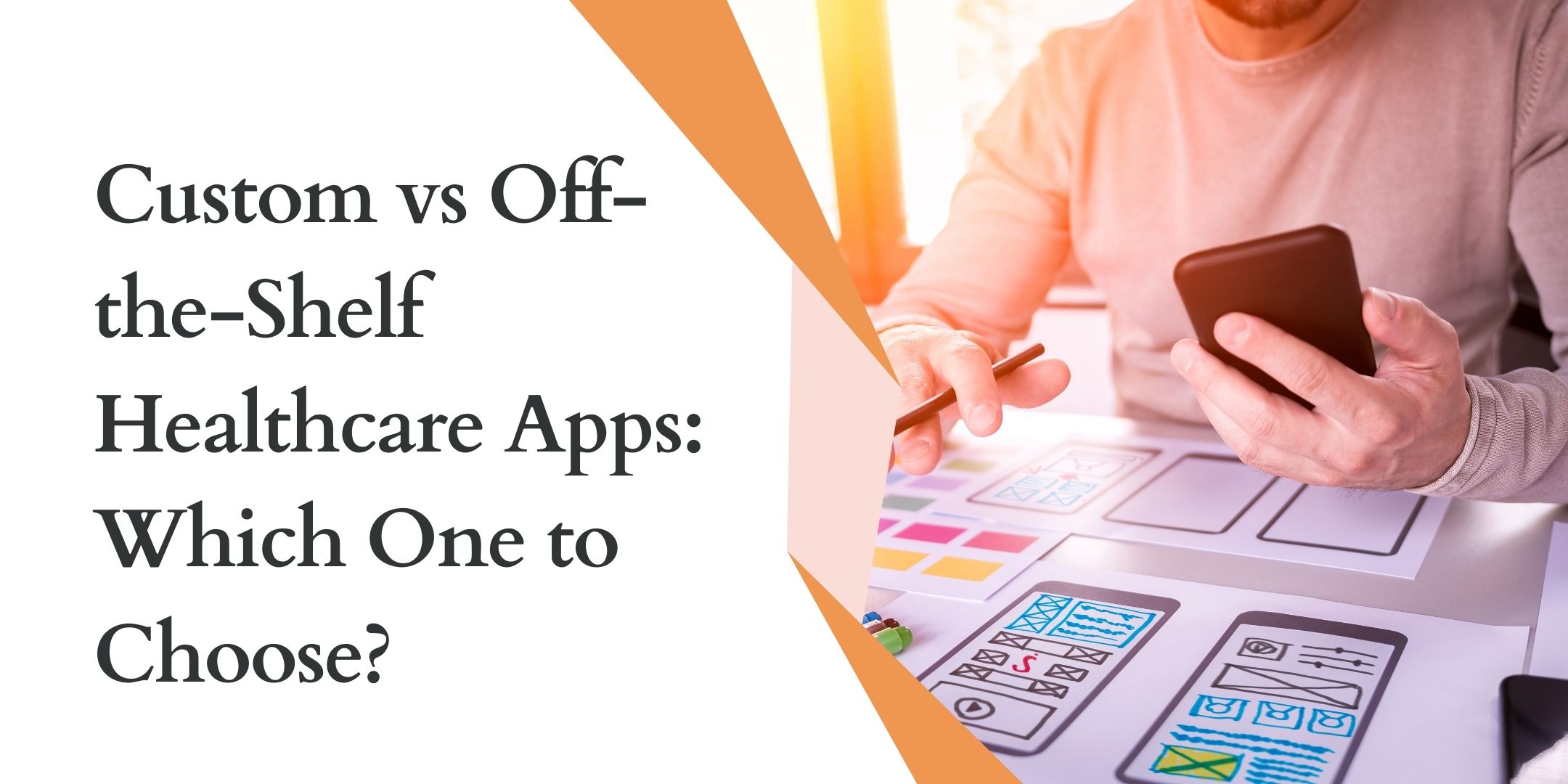The need for healthcare technology keeps rising as providers aim to enhance patient care, create smoother workflows, and follow changing regulations.
Hospitals, diagnostic centers, and clinics often ask whether they should choose a custom-built healthcare app or go with an off-the-shelf product. This choice does not affect cost and setup time but also influences performance and future adaptability.
This guide looks at how custom apps differ from off-the-shelf ones to help you figure out which option works best for your needs.
Getting to Know the Basics
Off-the-shelf healthcare apps are ready-made software products that work across many healthcare environments. They have standard features and allow for quick implementation.
Custom healthcare apps are made to fit the specific needs of an organization. These apps align with workflows, meet user needs, and are designed to integrate with existing systems.
Key Differences Between Custom and Off-the-Shelf Apps
| Feature | Off-the-Shelf App | Custom App |
| Cost | Lower initial cost | Higher upfront investment |
| Time to Deploy | Immediate or fast | Longer development timeline |
| Flexibility | Limited customization | Fully customizable |
| Scalability | Limited as operations grow | Designed to scale |
| Integration | May not support existing tools | Built for seamless integration |
Why Choose Custom Healthcare Apps
Built to Fit Your Needs Custom apps align with how your team works. This can help improve how well staff perform and make patients happier with the service.
Scalable Design Custom solutions grow with your facility adapting as you expand or make changes. You can add features or connect new tools as needed.
Better Security and Compliance Custom apps let you put in place specific security systems and compliance rules like HIPAA or GDPR.
Smooth System Integration Custom apps fit right in with your existing software like EMR systems, billing tools, schedulers, and others.
When to Choose Off-the-Shelf Apps
Off-the-shelf apps work best in situations like:
- Startups or small clinics working with tight budgets
- Organizations needing quick setup
- Workplaces where specialized tools are not essential
- Facilities that rely on system integration
Things to Think About Before Choosing
- Budget: Building custom apps costs more in the beginning. However, they can bring better value and are easier to adjust over time.
- Timeline: Using ready-made solutions gets things running quicker if speed matters most.
- Compliance Needs: Tailored solutions can align with the specific laws and rules of your region or country.
- Growth Potential: If you expect to grow or handle more complex tasks later custom-built options might work better long-term.
Finding the Right Tech Partner
Choosing the best healthcare app starts by identifying what your goals are and what challenges your operations face. Partnering with a skilled healthcare IT company helps ensure that your app—whether it’s custom-made or adapted from an existing tool—is easy to use, secure, and meets compliance standards.
Arobit Business Solutions guides healthcare organizations in creating and using digital tools that fit into their systems. Our team focuses on building healthcare IT solutions that bring practical outcomes and support ongoing success.
Wrapping Up
Choosing between a custom-built or ready-made healthcare app depends on the size of your organization how complex its needs are, and its long-term plans. Ready-made apps work well to set up with a smaller budget, but custom apps give you more control, flexibility, and options to integrate with your systems.
Looking at your current tools, finances, and where your organization is headed helps you pick what suits both your clinical and business goals best.
FAQs: Custom vs Ready-Made Healthcare Apps
1. Which option saves more money overall?
Ready-made apps cost less at first, but in the long term, custom apps can offer a better return since they fit into your workflow and avoid hitting limits down the road.
2. Is it possible to modify ready-made apps later?
Some provide basic customization, but many come with restrictions. If tailoring the app is crucial creating a custom app works better.
3. Do custom apps offer better security?
Yes. Custom apps include specific security options and improved data encryption that align with healthcare rules.
4. Which option handles scalability better?
Custom apps focus on scalability. They adapt as your organization expands, while most standard tools may limit growth.
